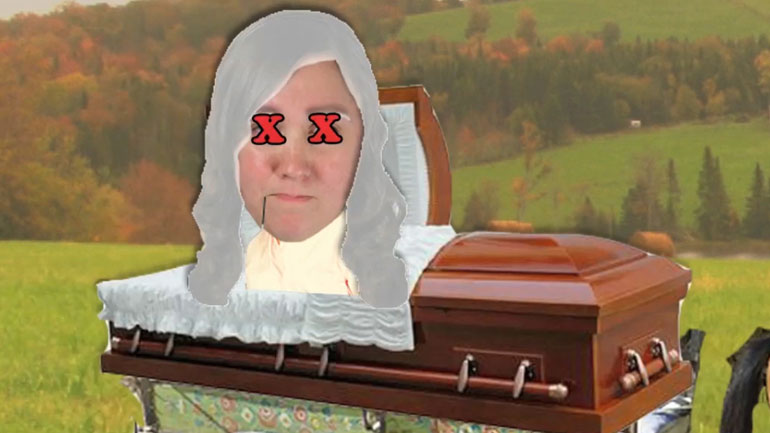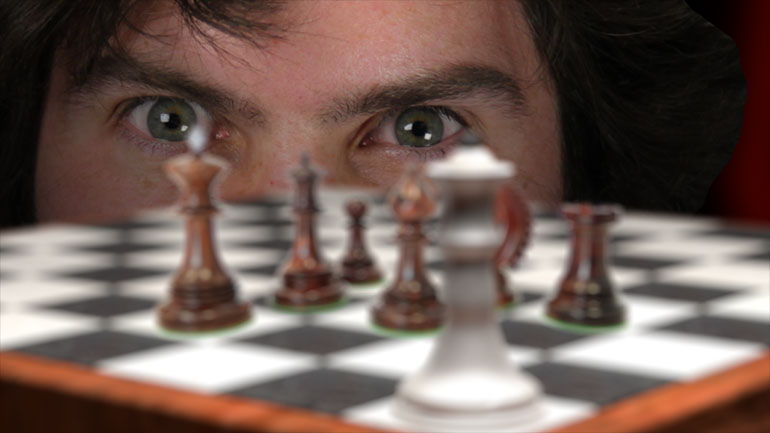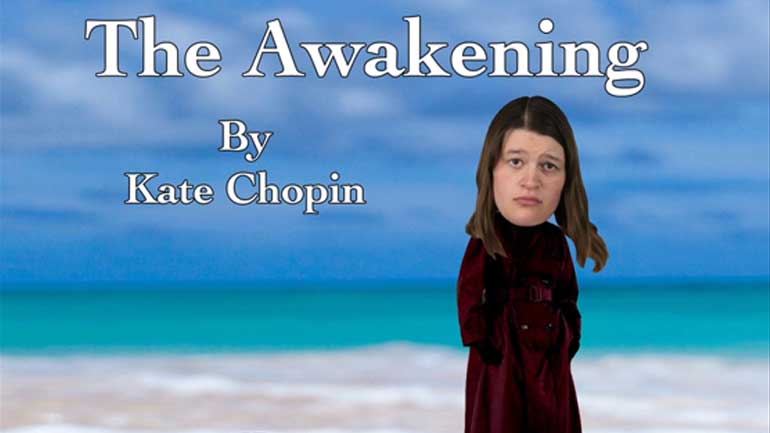ShmoopTube
Where Monty Python meets your 10th grade teacher.
Search Thousands of Shmoop Videos
Family Videos 62 videos
This video summarizes the play A Raisin in the Sun. It discusses the Youngers, members of an African-American family trying to better themselves wh...
It may be the best of times for Chuck Darnay, but it's pretty much constantly the worst of times for Sydney. Poor guy.
A family goes on a quest to bury their family member. Yeah, sounds simple...except it never is. ‘Cause mom’s dead, and people have issues which...
Frankenstein: The Purpose of Creation 11354 Views
Share It!
Description:
The creation of Frankenstein’s creature is actually a metaphor for potatoes? Whoa. That’s crazy. We never would’ve….oh. Wait. It’s a metaphor for childbirth? Huh. Well. ...That’s not as cool.
Transcript
- 00:01
We speak student!
- 00:03
Frankenstein a la Shmoop
- 00:05
The Purpose of Creation
- 00:07
Why the creation scene?
- 00:11
[ classical music ]
Full Transcript
- 00:22
[ music continues ]
- 00:30
[ music intensifies ]
- 00:33
[ music darkens and slows ]
- 00:40
It's pretty easy to see
- 00:42
that this is a birthing scene, right?
- 00:46
It's a creation scene
- 00:47
on one side.
- 00:49
And we can talk a lot about,
- 00:50
you know, how Victor Frankenstein is playing God.
- 00:53
We'll talk about that a little bit later in the course.
- 00:56
But, if we're thinking about this from Mary Shelley's perspective,
- 00:59
it is an actual childbirth scene.
- 01:02
If you read the passage,
- 01:04
the creation scene,
- 01:06
there are words like
- 01:08
"agony,"
- 01:10
"toil."
- 01:11
These words that we really associate with childbirth.
- 01:15
And childbirth in the early 1800s
- 01:18
was not easy.
- 01:20
You know, it wasn't like you go in,
- 01:22
get your epidural, and everything's done.
- 01:24
It was painful.
- 01:26
Postpartum depression was actually a huge issue.
- 01:29
Back then they didn't call it that.
- 01:31
But the entire scene and what happens during and after it
- 01:35
is really supposed to recall childbirth.
- 01:36
As I mentioned, Mary Shelley,
- 01:38
who we say, "Oh, well, she was only 18.
- 01:40
What does the she know about childbirth?"
- 01:42
She had already given birth twice at that point.
- 01:44
And, kind of, these labor pains
- 01:47
are a metaphor for childbirth, a metaphor for writing the book,
- 01:51
et cetera, et cetera.
- 01:52
And you can read this scene in so many different ways.
- 01:54
Just one reading is to say
- 01:56
she's kind of showing what childbirth is like.
- 01:59
Why would she be so intent on doing that
- 02:01
other than the fact that she'd given birth twice?
- 02:03
She was living and writing
- 02:06
in a society dominated by men.
- 02:08
And men could do everything in this period. And they did.
- 02:13
The one thing men could not do
- 02:15
was create life.
- 02:16
That was the one thing that women could do
- 02:18
that men couldn't.
- 02:19
So she wants to kind of show the scene of
- 02:22
here's a man trying to create life
- 02:24
- and -- - Things go awry.
- 02:25
- Yeah. - So in the whole vein of trying to create life,
- 02:29
there's the notion of trying to control life
- 02:32
and destroy life.
- 02:34
And, you know, you have to think about
- 02:38
a child -- She was probably 15 when she got pregnant
- 02:41
the first time.
- 02:43
and there have been a number of readings of Frankenstein
- 02:45
as an abortion, as a living abortion.
- 02:48
It's a woman taking control of her body
- 02:50
in a way that you couldn't do before,
- 02:54
you wouldn't want to do.
- 02:55
And you can imagine the technology of abortion
- 02:57
back then was a whole different animal.
- 02:59
- Yeah. - How does all that play
- 03:01
in its time frame?
- 03:03
And with her as a person who's like --
- 03:04
I think of her as this very smart, lonely woman
- 03:07
whose time was 200 years early in some way.
- 03:11
What we risk doing is reading
- 03:14
onto Frankenstein something that was not there
- 03:17
because we now have these, you know, huge controversies
- 03:21
and things like that about abortion now.
- 03:23
But that's not to say that we
- 03:24
A - should not do that
- 03:25
or B - that that was not actually the case back then.
- 03:28
But, yeah, there is a lot of this idea of a woman
- 03:30
being able to control the birthing process.
- 03:34
What's interesting about Frankenstein is that
- 03:38
if we're thinking about it in terms of an abortion,
- 03:40
like you said, it's a living abortion.
- 03:41
Frankenstein gets created.
- 03:43
He's not aborted as a fetus or whatever you would say.
- 03:47
He is born
- 03:49
and then his creator abandons him.
- 03:51
We can talk about it as an abortion,
- 03:53
but I think the bigger issue,
- 03:55
or the issue that would have been more important at the time,
- 03:58
was this abandonment issue.
- 04:01
And this child was born and then immediately
- 04:03
his father, the creator, just completely abandoned him.
- 04:07
Which brings into bigger questions of,
- 04:10
you know, nature versus nurture,
- 04:11
which we'll talk about in a bit.
- 04:13
Was the monster born bad
- 04:14
- or was, you know, badness thrust upon him? - The environment bad.
- 04:17
- Yes. - [ laughs ]
- 04:20
What does the creation scene represent in Frankenstein
- 04:22
and why is it included?
- 04:25
What controversies arise?
Related Videos
They say that honesty is the best policy, but Jack lies about his identity and still gets the girl. Does that mean we should all lie to get what we...
Ever wish you could remember everything that you ever studied? How about everything that everyone has ever studied? Yeah, pretty sure our brains ju...
Ralph Ellison's Invisible Man is an American classic. Hope you're not expecting any exciting shower scenes though. It's not that kind of book.
Do not go gentle into that good night. In fact, if it's past your curfew, don't go at all into that good night. You just stay in your good bed and...

































































